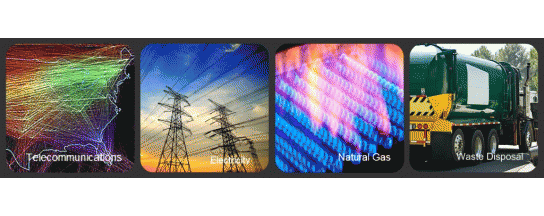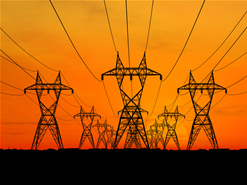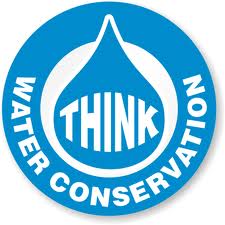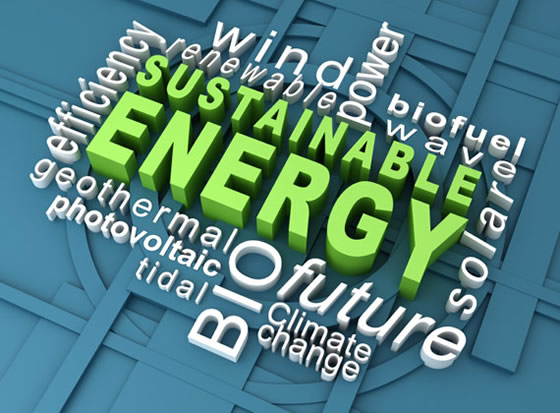|  |  | | U.S. Gas Electric & Telecom - Water

Energy Programs
USGE&T has the ability to take advantage of open energy market opportunities; we move swiftly to educate our customers on prevailing and future market conditions, while providing competitive pricing and oppor- tunities for cost savings. We have found that creating extremely attractive pricing plans gives our customers continuous purchasing power to make sound economic decisions.
San Fernando Valley and Southern California

YJ Draiman dba U.S. Gas Electric Water Tel or Energy Savers - Renewableenergy2.com
or energysavers2.com
818-366-6999

“Determination and perseverance will bring your goal to fruition” – never give-up
"THE KEY TO SUCCESS - IS BEING HONEST AND CANDID WITH YOUR CUSTOMERS"
“Good business leaders create a vision, articulate the vision, passionately own the vision, and relentlessly drive it to completion”
Sustainability - "We strive to meet the needs of the present generation without compromising the ability of future generations to meet their own needs".
“It is cheaper to save energy than make energy”
ENERGY EFFICIENCY IMPLEMENTATION IS CRUCIAL TO OUR ECONOMY
Offering cost recovery programs for Gas, Electric, Telecom and Water
"Paying for utility costs without using a Utility Auditor and Monitor is like driving a car at night with the lights turned off"
Water is the source of life - treasure it!
We should discourage wastefulness and misuse, and promote efficiency and conservation.
We can help you conserve water and reduce your costs.
Protect Yourself from Unauthorized Third-Party Charges on your Phone Bill
Energy is a resource necessary for every business, whether the business sells goods or services, has 10 or 10 thousand employees, or is located in Alaska or Antigua. Using energy efficiently helps businesses maintain (or improve) their image as a responsible environmental concern while improving the bottom line. Increased energy efficiency means realizing more profit per unit of energy.
Energy efficiency can be best achieved by using both products and practices. Products that enhance efficiency include compact florescent lights bulbs, and practices include such behaviors as turning off office equipment at the end of the day. Energy Savers offers Energy Professionals the information and resources they need to succeed in managing their energy resources.
Check out the categories that apply to you to see what you can learn!
OUR MISSION
A SATISFIED CUSTOMER
Mission Statement - honesty, Integrity and customer service
Our Mission
To educate our prospective and existing customers of the benefits and operating savings available through energy efficiency, renewable energy, computer/technology automation using a combination of hardware, software, and network services. |
To educate our prospective and existing customers of the benefits and operating savings available through energy efficiency, renewable energy, computer/technology automation using a combination of hardware, software, and network services. |
Our Vision
To enhance and maintain a leading edge leadership position in Energy efficiency, Renewable energy, computer/telephony integration in terms of working applications, achieving real productivity benefits for our client base. |
To enhance and maintain a leading edge leadership position in Energy efficiency, Renewable energy, computer/telephony integration in terms of working applications, achieving real productivity benefits for our client base.
|
Our Values
To maintain a supportive partnership environment with, and respect for, our customers and their needs through a program of continuous improvement and a commitment to teamwork, thus providing our staff with enjoyable, creative, and rewarding long-term employment opportunities.
or further information email: info@usgaselectric.net to U.S. Gas Electric Tel, or call us at
1-847-274-3100
Services Provided:
Complete Energy Audit
Utility Bills Audit (Gas, Electric, Tel., Water, etc.)
Water consumption audit - conservation implementation
Telecom audit - carrier negotiations
Building Envelope Inspection
Energy Efficiency Methods and Implementation
Renewable Energy Applications & Implementation
(Solar/Photovoltaic, Wind, Geothermal, Fuel-Cell, etc.)
"Helping you utilize the energy of the sun"
ENVIROMENTAL REGULATIONS, INCREASED WORLWIDE DEMAND AND CLIMATE CHANGE ARE HAVING A DRAMATIC IMPACT ON THE PRICE OF ENERGY.
HOW WILL THIS AFFECT YOUR UTILITY COSTS?
We can help.
Energy Savers is one the world’s leading utility cost management consulting firm. We specialize in providing audit, (production tax refund), rate optimization,procurement, conservation, energy efficiency implementation, retrofit, demand management, renewable energy, on-line utility data management services and market pricing research to reduce and better manage electricity, gas, water/wastewater, petroleum and telecommunications expenses.
Paying for energy is simple, you get the bill and pay it, but cutting energy costs is complicated even for buyers with decades of experience. This is because the price you pay and the quantity you consume is heavily influenced by politics, economics and weather. These are variables that change irregularly and sometimes quiet drastically. As if that were not enough of a headache, many of the programs and dynamics change as you move from one market to another. So managing multiple locations can take a little time and effort.
Price x Quantity – Incentives = Cost
Price = Electricity and Natural Gas account for 87% of total energy supply cost
Quantity = Lighting and HVAC account for 75% of building energy consumption
Incentives = Federal, State and local government and utility rebates, credits and tax incentives
THE ENERGY COST represents 60-85% of you total electric bill. Market forces, not regulators, dictate this piece. Very volatile but very liquid – meaning you can assume as little or as much price risk as is appropriate for your business drivers.
THE DELIVERY COSTS are associated with bringing energy from the generator to your meter. This cost is driven by regulatory bodies and system operators. Ensuring accurate rate and classification is a key to minimizing your delivery costs.
ENERGY COSTS – 60-85%
T&D (Transmission and Distribution – 15-40%
Delivery Cost – (Regulated)
Generation – (Market Based)
SOLAR POWER BASICS
Solar power is the technology of obtaining energy from the light of the sun. Solar cells take the energy from the sunlight and covert it to energy. This is done with semiconducting materials like silicon that have the properties of both a metal and an insulator. These solar cells can’t produce usable energy by themselves, so they have to be connected to other systems to carry the electricity generated.
Photovoltaic (PV) systems are grid-tied or off-grid systems. The difference is that a grid-tied system can feed energy back into the power grid, utilizing the grid for storage. The off-grid system’s energy must be used as it is produced or stored via on-site battery.
While the sun is shining, the photovoltaic panels generate direct current (DC) electricity, which is converted to alternating current (AC) electricity by an inverter. With grid-tied systems, when the sun isn’t out, your electrical demand will be automatically provided by the utility. Off-grid systems depend on energy stored in on-site batteries to deliver power when the system is not producing enough power.
![]()
GEOTHERMAL SYSTEM
 
 
1. How does a geothermal system work?
Throughout the year, outdoor temperatures fluctuate with the changing seasons. However, underground temperatures do not. In fact, about four to six feet below the earth's surface, temperatures remain relatively constant year-round. A geothermal system, which consists of an indoor unit and a buried earth loop, capitalizes on these constant temperatures.
In the winter, fluid circulating through the system's earth loop absorbs stored heat and carries it indoors. The indoor unit compresses the heat to a higher temperature and distributes it throughout the building. In the summer, the system reverses, pulling heat from the building, carrying it through the earth loop and depositing it in the cooler earth.
2. What makes a geothermal system different from conventional systems?
A geothermal system utilizes the energy from the sun, which is stored in the earth, to heat and cool homes and buildings. Typically, electric power is used only to operate the unit's fan, compressor and pump. So, unlike conventional systems, geothermal systems do not burn fossil fuel to generate heat--they simply transfer heat to and from the earth.
3. How efficient is a geothermal system?
A geothermal system is more than three times as efficient as the most efficient conventional system. Because geothermal systems do not burn combustible fuel to make heat, they provide three to four units of energy for every one unit used to power the system.
4. What does geothermal mean to the environment?
Because geothermal systems work with nature, not against it, they minimize the threats of acid rain, air pollution and the greenhouse effect. An environmentally friendly fluid is used in the closed, continuous loop.
5. Do geothermal systems require much maintenance?
No. In fact, geothermal systems are practically maintenance free. When installed properly, the buried loop will last for generations. And the other half of the operation--the unit's fan, compressor and pump--is housed indoors, protected from the harsh weather conditions. Usually, periodic checks and filter changes are the only required maintenance.
6. How much money can I save with a Geothermal System in my home?
In a technology defined by numbers, here's a fact that everyone will understand: With a geothermal system, (also known as geo-exchange systems) a reasonably tight 2,000 sq. ft. home can be heated and cooled for about $1.00 a day. You'll pay several thousand more up front, but in many cases, the payback can come in as little as 5 to 7 years. And once the system is paid off, the annual return on investment can approach 15-20%. Add impressive durability and less-intrusive trenching methods and the scales begin to tip, at least in the new home market. But, Geothermal systems can also be installed in existing homes as well. It will also increase the value of your home. Many people comment on how "clean" geothermal heat & cooling is for their home. There is virtually no dust since fossil fuels are not involved. It is much healthier for you and the environment.
Geothermal Technology
Types of Geothermal Loops
Vertical Loop:
These loop systems are used mainly when land area is limited. A drilling rig is used to bore holes to depths of approximately 125 to 250 feet deep. A u-shaped loop of high density polyethylene pipe is inserted. The holes are then backfilled with a sealing solution. The system is closed loop meaning that the same solution placed in the system is continuously re-circulated through the system. |
 Vertical Loop Video Vertical Loop Video
( 256 kbps Windows Media )
|
|
|
Horizontal Loop:
These loop systems are used when adequate land is available. Loop installers use a chain trencher or backhoe to dig trenches. Each trench is approximately 6 feet deep. Trench lengths range from 100 to 300 feet, depending on loop design and application. This process is also a closed loop system. |
 Horizontal Loop Video Horizontal Loop Video
( 256 kbps Windows Media )
|
|
|
Pond Loop:
Option available if a large body of water is present. A ½-acre, 8 feet deep body of water is usually sufficient for the average home. This closed loop system places coiled pipe on the bottom of the body of water. |
 Pond Loop Video Pond Loop Video
( 256 kbps Windows Media )
|
|
|
Open Loop:
This system does not continuously run the same solution through the geothermal system. Ground water is pulled from one location, ran through the geothermal unit, and discharged into another location. Two requirements are needed for an open loop system. The first is an abundant supply of well water must be available. The second is that a proper discharge site such as a ditch, field tile, stream, or pond must also be present. Check your local codes before selecting a discharge method. |
 Open Loop Video Open Loop Video
( 256 kbps Windows Media )
|
|

|
Fuel-Cell/Hydrogen Energy
![]()
Clean Transport with Hydrogen!
     
In Articles / Abstracts you will find important and fundamental facts and developments in the field of hydrogen.
The HyWeb-Compendium summarizes the technical and economical state of the art as well as the perspectives in the areas: hydrogen production, transportation, storage, handling and applications.
FUEL CELL
You’ve probably heard about fuel cells. In 2003, President Bush announced a program called the Hydrogen Fuel Initiative (HFI) during his State of the Union Address. This initiative, supported by legislation in the Energy Policy Act of 2005 (EPACT 2005) and the Advanced Energy Initiative of 2006, aims to develop hydrogen, fuel cell and infrastructure technologies to make fuel-cell vehicles practical and cost-effective by 2020. The United States has dedicated more than one billion dollars to fuel cell research and development so far.
Energies Futures PricesFriday, Dec 21st, 2012
|
|
 |
 |
   |
CL J0 [10] |
LIGHT CRUDE OIL |
Apr '10 |
15:35:49 |
|
-1.87 |
82.17 |
82.17 |
79.86 |
   |
HO J0 [10] |
HEATING OIL |
Apr '10 |
15:35:44 |
|
-0.0461 |
2.1160 |
2.1160 |
2.0502 |
   |
XRB J0 [10] |
NY HARBOR RBOB GASOLINE BLENDSTOC |
Apr '10 |
15:35:30 |
|
-0.0489 |
2.3038 |
2.3039 |
2.2350 |
   |
NG J0 [10] |
NATURAL GAS |
Apr '10 |
15:35:04 |
|
0.084 |
4.091 |
4.175 |
4.050 |
   |
JM H0 [10] |
CLEARPORT: PJM FINANCIALLY SETTLE |
Mar '10 |
17:23:44 |
|
|
|
|
|
|
 |
   |
CL V9 [10] |
LIGHT CRUDE OIL |
Oct '09 |
13:00:44 |
|
3.53 |
68.11 |
71.79 |
67.54 |
   |
HO V9 [10] |
HEATING OIL |
Oct '09 |
13:00:35 |
|
0.0799 |
1.7250 |
1.8098 |
1.7084 |
   |
XRB V9 [10] |
NY HARBOR RBOB GASOLINE BLENDSTOC |
Oct '09 |
13:00:25 |
|
0.0814 |
1.7625 |
1.8615 |
1.7529 |
   |
PN V9 [10] |
PROPANE GAS |
Oct '09 |
15:44:37 |
|
|
|
|
|
   |
NG V9 [10] |
NATURAL GAS |
Oct '09 |
13:00:43 |
|
0.126 |
2.659 |
2.888 |
2.623 |
   |
JM U9 [10] |
CLEARPORT: PJM FINANCIALLY SETTLE |
Sep '09 |
16:42:55 |
|
|
|
|
|
|
So what exactly is a fuel cell, anyway? Why are governments, private businesses and academic institutions collaborating to develop and produce them? Fuel cells generate electrical power quietly and efficiently, without pollution. Unlike power sources that use fossil fuels, the by-products from an operating fuel cell are heat and water. But how does it do this?
California is on the road to energy conservation

LINKS
Attorney General (AG) of your State - Each state has a consumer protection
agency within the AG's office. Go to your state website example: http://www.state.gov
Better Business Bureau (BBB) - http://www.bbb.com
Federal Trade Commission (FTC) - http://www.ftc.gov
or call 888 225-5322
Federal Communications Commission (FCC) - http://www.fcc.gov
State Public Utilities Commisssion (SPUC or PUC) see the check list at
http://www.fcc.gov/wcb/iatd/state_puc.html
United States Postal Service (USPS) http://www.usps.com/postalispectors/ (mail fraud)
YJ Draiman, Energy Analyst

|
To maintain a supportive partnership environment with, and respect for, our customers and their needs through a program of continuous improvement and a commitment to teamwork, thus providing our staff with enjoyable, creative, and rewarding long-term employment opportunities.
|
"Who controls the food supply controls the people";
"who controls the energy supply controls whole continents";
"who controls money controls the world";
"who controls water sources controls life". |
|
|
























